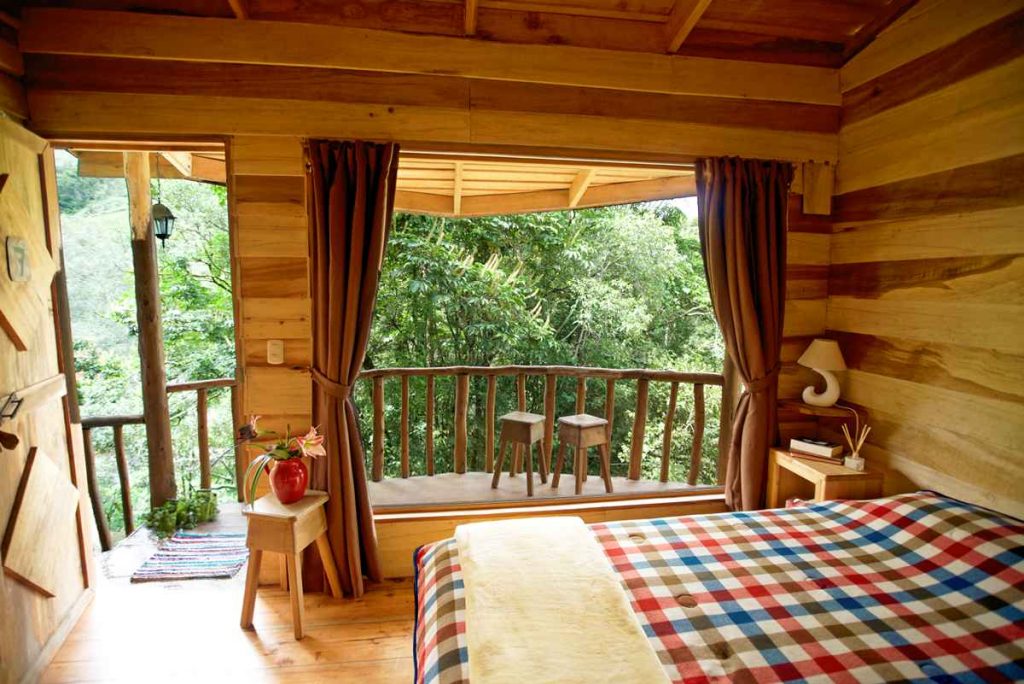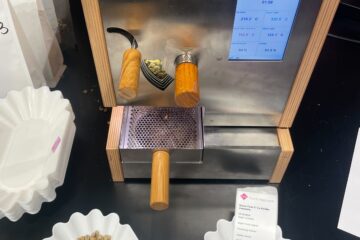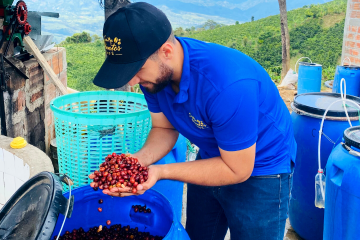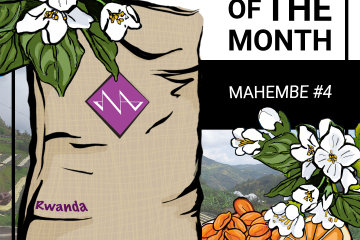We’re now under one month away from our first ever conference in origin. Of course it’s not really a conference. First of all, the audience is limited to 30 tickets, so it will feel cosy. Everyone will have time to ask questions, and form long lasting relationships with famers, producers and other participants. Everyone will be staying at the same hotel (Cedrela EcoLodge), included in the ticket price, a cute eco-lodge in Tarrazu. Whereas a lot of conferences tend to be lecture heavy, Origin Approach Costa Rica 2018 will have plenty of hands-on workshops and field trips to farms. We’ve put a lot of effort into getting the balance just right, Morten has been curating the agenda, which looks fantastic (maybe I’m a bit biased, but have a look here and you be the judge).

So why does a green coffee importer want to start a conference? We needed a creative way and an approachable space to start conversations on sustainable quality production. We also wanted a way to bring together all of the hands involved in the supply chain. Origin Approach is one way we aim to bring transparent communication on the topic as well as education across a variety of industry topics. We hope to not only inspire coffee leaders and thinkers to act on these experiences, but to also recognise the impact we each hold in this industry. What better way is there to bridge this gap than to bring together the experts and producers in origin?
The key to getting this just right is of course to get the right people to attend. As such, we have not advertised this event. Preferring instead to reach out to our existing community and network. We currently have 10 tickets remaining. If you are one of those people who care as much about the quality of life of the coffee farmer as the quality of the coffee itself, then this event is for you.
Origin Approach will take place during the harvest season, 11–14th of February, in Tarrazú. This coffee region has a long-standing reputation for its quality. The Tarrazú region is located at 1,200-2,000 meters above sea level. Cool temperatures at high altitudes slows coffee bean development and gives them more complex sugars and interesting flavours. Harvest season is the most interesting time to be visiting farms and micro-mills, and there will be excursions every day to learn more about growing coffee and processing it.
The Program
The three-day event is organised with a mix of lectures, cuppings, field trips, panel discussions, and practical activities. Topics such as cultivars, coffee processing and production, economics at producer level and sustainability will be covered… with a focus on the Costa Rican context. Origin Approach 2018 is being organized with help from our friends at Viaje con Café, an agency specialized in travel and events in coffee regions.

Every day we will have excursions to different farms and/or micro-mills, to learn more about processing as well as getting to cup their coffees. The farms visited are Don Eli micro-mill, Santa Teresa and La Montana.
The secrets to growing Geisha
One of the speakers is Matias Monge, who won first price in the 2017 Cup of Excellence competition. He will tell us all about his geisha experiments and the challenges he has had to overcome to produce his award-winning coffee. What are the key environmental and farm management factors that lead to high-scoring coffees?
Coffee Processing
What is an anaerobic coffee fermentation process? How many hours does coffee need for fermentation, drying and resting with this process? Esteban Villalobos Corrales from Café de Altura de San Ramón will go deeper into innovative coffee processing approaches. We’ll of course learn loads about Costa Rica’s specialty, the honey process, as well. The ‘Honey’ process of coffee fermentation was born in the micro mills of Costa Rica in the early 2000s. Costa Rican producers sought ways to improve their coffees and started to build micro mills to process their harvests with more care and variety. Today, you can find four different types of honey processing: Black Honey (~100% mucilage left to dry on bean, only cherry skin removed), Red Honey (~80% mucilage left on bean), Yellow Honey (50% mucilage removed, similar to traditional pulped natural style), and White Honey (10-20% mucilage left on bean). Ricardo Andrés Ureña Rojas will be teaching about the use of water in honey and natural coffees. Whereas the average age of coffee farmers is 56 years old, some youths are returning to coffee areas to start-up associated coffee businesses. One of them is Ricardo Andrés Ureña Rojas, who has a unique perspective on the future of coffee growing.

Have you tried coffee beer from an origin country? Maybe you’ve tried making beer at home but not sure how to make coffee beer, or brew for selling at your coffee shop? At Origin Approach you will have a chance not only to taste the beer but to learn how it is made and the story behind Meriche, a local Brewery owned by four young entrepreneurs: Isaac Elizondo, Adrian Agüero Piedra, Isaìas Ureña Sandìy and Cristian Solis. They will be happy to share what they have learnt about brewing different kinds of coffee beer and answer any questions.
Optional extras
If you want to visit more countries than Costa Rica, you are welcome to come with us to El Salvador and Honduras as well. These will be regular cupping trips, no lectures/conferences/workshops. Find out more about all our origin trips.
Hopefully this event will be the first of many, and we hope to see you there!



0 Comments